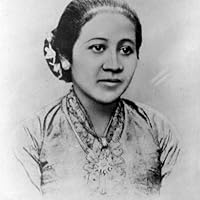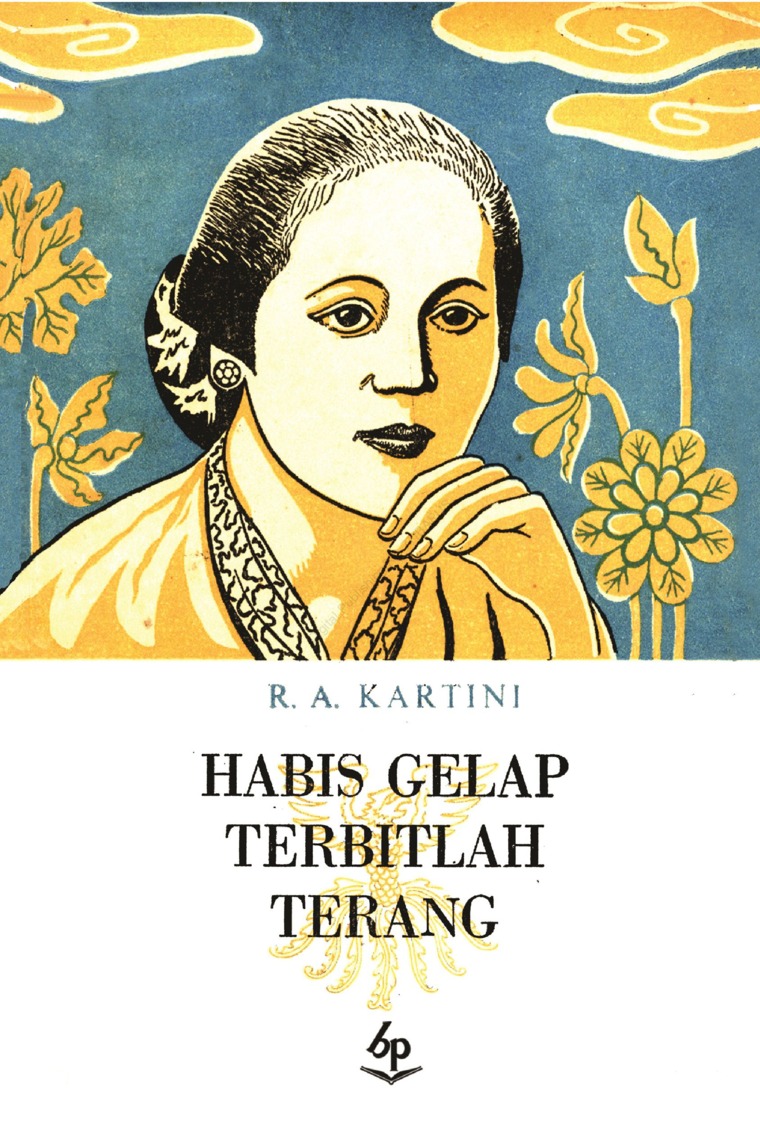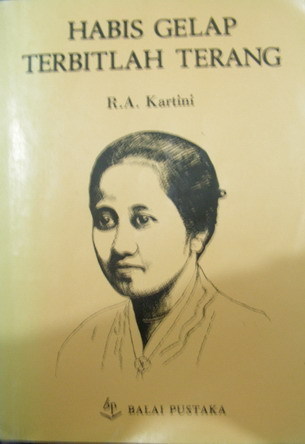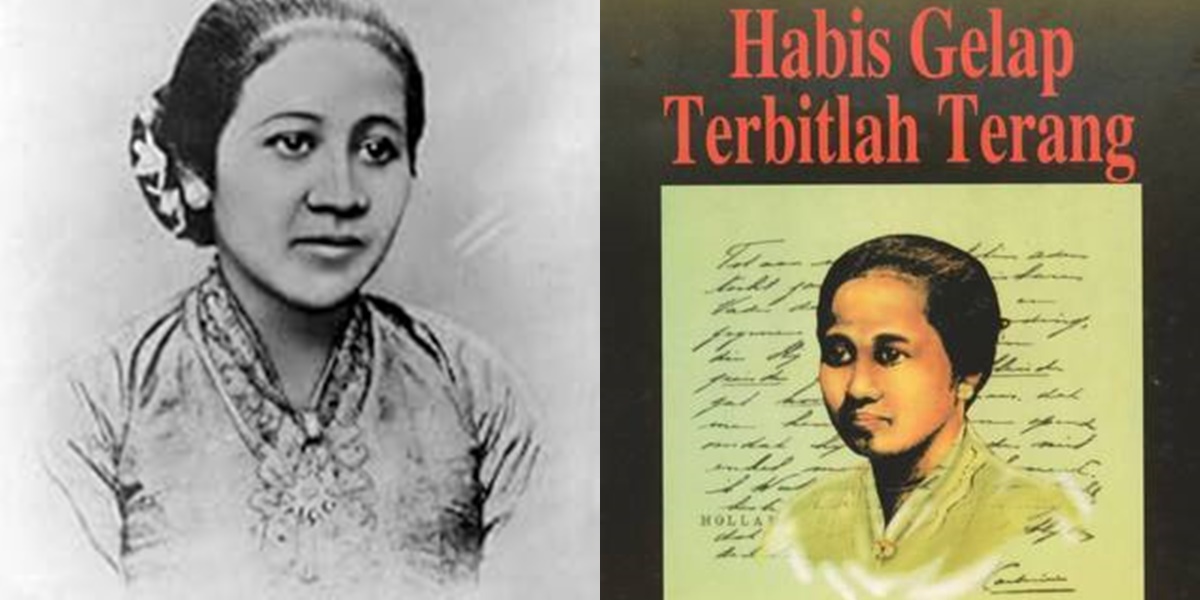Kapanlagi.com -
RA Kartini is a name closely associated with the struggle for women's emancipation in Indonesia. Kartini fought to voice equality for Indonesian women. The birthday of RA Kartini is commemorated every year as Kartini Day. In addition, RA Kartini is also remembered for her work in the form of the book Habis Gelap Terbitlah Terang.
Even today, many people read the book Habis Gelap Terbitlah Terang to seek inspiration and motivation. This is because, in the book Habis Gelap Terbitlah Terang, there are letters that serve as archives of RA Kartini's views on the rights of women who are still marginalized.
But actually, what is the content of the book Habis Gelap Terbitlah Terang? Instead of being curious, let's directly look at the following review.
1. Brief Biography of RA Kartini

Brief Biography of RA Kartini (credit: goodreads)
RA Kartini was born on April 21, 1879, in Jepara, Central Java, into an aristocratic family. Her father, Raden Adipati Ario Sosroningrat, was the Regent of Jepara. Meanwhile, her mother, MA Ngasirah, did not come from noble descent. Due to social status, RA Kartini's father married Raden Adjeng Woerjan, a noblewoman from Madura, thus he was appointed as regent after Kartini was born.
Kartini was the fifth child of eleven siblings, both biological and step-siblings. As the eldest daughter of the first wife, she received an education at ELS (Europese Lagere School) until the age of 12. At that school, Kartini learned Dutch, which later became the key for her to explore modern thoughts through newspapers, magazines, and books.
Kartini's adolescence was filled with limitations due to customs that required women to be secluded. Nevertheless, Kartini's spirit to learn never waned. He was actively corresponding with friends from the Netherlands, such as Rosa Abendanon and Estelle H Zeehandelaar. Through these letters, Kartini compared the lives of women in Europe with Indonesian women, and began to formulate ideas of emancipation.
At the age of 24, Kartini married K.R.M Adipati Ario Singgih Djojo Adhiningrat, the Regent of Rembang. Her husband supported her desire to establish a school for girls. The school became a significant milestone in the struggle for women's education in Indonesia.
Kartini gave birth to a son, RM Soesalit Djojoadhiningrat, on September 13, 1904. However, four days after giving birth, Kartini passed away at the age of 25. She was buried in Bulu Village, Rembang. Kartini's legacy of thought continues to live on through her works and her spirit in advocating for women's rights.
2. Content of the Book Habis Gelap Terbitlah Terang

The content of the book 'Habis Gelap Terbitlah Terang' (credit: goodreads)
The collection of letters from R.A. Kartini was first published in Dutch under the title Door Duisternis tot Licht in 1911. In 1922, Balai Pustaka translated it into Malay under the title Habis Gelap Terbitlah Terang: Boeah Pikiran. A more popular version was compiled by Armijn Pane in 1938.
This book contains 106 letters that Kartini sent to her friends, including Estelle H Zeehandelaar, Rosa Abendanon, and J.H. Abendanon. In these letters, Kartini expresses her thoughts on various issues, such as the oppressive feudal tradition, forced marriages, and the importance of education for women.
Kartini's letters reflect her life experiences as the daughter of a Javanese regent. She criticizes the culture that hinders women's progress and proposes progressive ideas about gender equality. Her thoughts expressed in these letters not only reflect personal concerns but also a grand vision to improve the social conditions of Indonesian women.
In addition to social issues, Kartini's letters also contain personal grievances about life within the constraints of tradition. However, behind her criticisms lies an optimism that change can be achieved through education and collective struggle. This book has become an inspiration for many women in Indonesia to continue striving for freedom and equality.
3. Quotes from the book 'Habis Gelap Terbitlah Terang'

Quotes from the book 'Habis Gelap Terbitlah Terang' (credit: goodreads)
Here are some inspirational quotes from the book Habis Gelap Terbitlah Terang that show the depth of RA Kartini's thoughts:
"Effort! Fight to free yourself.. Once you are free because of your efforts, only then can you help others."
"The more we understand, the less resentment there is in our hearts, the fairer our judgment, and the stronger the foundation of love. To hold no grudges, that is happiness."
"Is there anything more disgraceful than depending on others?"
"Because there are dead flowers, many fruits grow; likewise in human life, right? Because there are youthful dreams that die, sometimes other dreams arise, which are more perfect, which can bear fruit."
"If we do not seek knowledge, our lives will not be happy and our lives will regress."
"There are no clouds in the sky that last forever. It is impossible for the weather to remain clear continuously. After a dark night, morning brings beauty."
"And regarding education, do not only sharpen the mind, but also elevate the spirit."
"We girls must not have opinions; we must accept, agree with, and endorse everything that others deem good."
"That the highest happiness of women, for centuries and even until now, is to live in harmony with men."
"I will teach my children, both boys and girls, to regard each other as equal beings."
"If one truly wants to advance civilization, then both intellectual intelligence and moral growth must be advanced together."
That is a brief overview of the contents of the book Habis Gelap Terbitlah Terang. Now you know what the book Habis Gelap Terbitlah Terang is about. If not now, when else?
(kpl/psp)
Disclaimer: This translation from Bahasa Indonesia to English has been generated by Artificial Intelligence.















